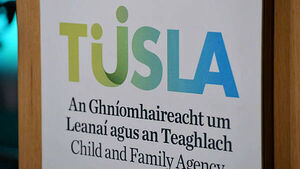Southeast foster care service fails to comply with standards two years running

Ottoline Spearman
A foster care service in the Southeast has ailed to comply with national standards for two years in a row.
The Child and Family Agency’s (Tusla’s) foster care service in the Carlow, Kilkenny and South Tipperary service area was inspected by HIQA in July 2025, where it was found that three of five standards were not compliant.
The inspection focused on the allocation of social workers to children in foster care and the care planning process, including the participation of children and their family in the preparation of the child’s care plan and child-in-care reviews.
The inspection also assessed how children are protected and safeguarded from abuse and how the governance and management structures support the foster care service.
HIQA found that the foster care service had not improved since the previous inspection the year before.
A spokesperson for HIQA said: "It is common for fostering services to have good levels of compliance against the National Foster Care Standards (2003). Frequently, over 50 per cent of standards inspected during inspections are compliant.”
Although there were governance and management arrangements in place, oversight systems were not robust and did not identify all risks for children in the foster care service.
Further, a shortage in the children-in-care workforce capacity negatively impacted on the quality of care provided to some of the children.
Tusla said that since the inspection, they have strengthened and reinforced governance and oversight measures. This included referrals being reviewed by a social work team leader and screened at the point of entry, with referrals then made to An Garda Síochána as necessary.
Tusla also said that a new audit system overseen by social workers has been introduced to further enhance governance and oversight of referrals, after an internal audit identified referrals to An Garda Siochána as an area for improvement.
HIQA also found that a large proportion of children were not allocated to a social worker. Instead, they had an ‘allocated worker’ such as a social care worker or social care leader, and there were a number of children who had no allocated worker to coordinate their care.
Several children and foster carers were dual unallocated, meaning that neither children nor foster carers had social workers allocated. Although managers were proactive and had attempted to mitigate risks associated with children without an allocated worker, such systems were in their infancy at the time of the inspection.
HIQA said that the current systems to manage complaints against foster carers required significant improvement to ensure adherence to Children First: National Guidance on the Protection and Welfare of Children 2017. Safeguarding practices also needed to be strengthened to ensure no dual unallocated cases and consistency in workers allocated to children in foster care.
In response, Tusla said that they face challenges in recruiting a sufficient number of social workers, but children and young people are allocated social workers and other professional roles as needed.
Since the inspection report, Tusla said that all children in care now have an allocated worker, and they are continuing to prioritise allocation of high-priority or at-risk cases to social workers.
Finally, the report found that care plans and review records generally reflected children's needs. However, further improvement was required to ensure that placement plans were updated, and the outcomes of review meetings were discussed with children and parents.
HIQA said that the service had an improvement plan in place, and managers were aware of and trying to address the gaps in meeting the needs of children.
Generally, HIQA concluded that practices were in line with local standard operating procedures, but that consistency was required in adhering to these procedures.
In addition, the majority of the procedures and guidance documents had not been reviewed and updated within the specified time frames. Further to this, staff supervision and caseload management for social care staff required improvement.
Commenting on the report, Joanne Cullen, Interim Regional Chief Officer, Tusla Carlow, Kilkenny and South Tipperary said: “Today’s report acknowledges the particularly challenging environment in which we deliver our foster care services, including a shortage of social workers, and the ongoing work, commitment and dedication by our team to deliver these important services.
"Foster care is an essential part of the child protection system, and we will continue to focus on the delivery of consistent and high-quality services and ongoing service improvements to enhance our foster care service across Carlow, Kilkenny and South Tipperary," she said.
"Our Integrated Reform Programme, and the associated Local Integrated Service Delivery model will ensure that children and families get the right response, in the right place, by the right person, at the right time.”




